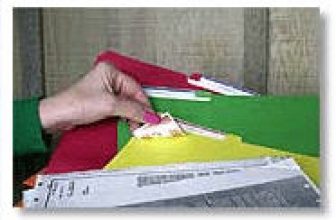
Indian oil company HPCL uses RFID tags to track 500,000 gas cylinders
[ad_1]
Hindustan Petroleum Corporation Ltd. (HPCL) uses RFID to track the transportation of 500,000 gas cylinders from the production location to the target customer. HPCL, with 25 million domestic customers and 40 million gas cylinders in circulation, has signed a contract with IBM worth 2.2 million US dollars to design and test an RFID system to track 50 Ten thousand steel cylinders.
This project is said to be one of the largest RFID application projects in India. Its goal is to realize automatic bottling and distribution of gas, while also preventing gas cylinders from being illegally used in commerce. In India, the government provides financial subsidies for domestic gas cylinders, said Nipun Mehrotra, vice president and general manager of IBM India Global Technical Services.
Buying domestic gas cylinders in India only costs US$6.56 for an individual, and the government subsidizes about US$6.5. The price of a commercial gas cylinder is 15.1 US dollars. Therefore, HCPL often finds that some household gas cylinders are used for commercial purposes.
“This illegal use consumes a lot of government funds, and HPCL hopes to prevent this illegal application,” Mehrotra said. “The Indian government has also issued a proposal to oil companies to encourage companies to label and track gas cylinders to prevent government subsidies. Illegal act.”
IBM provides passive 134 kHz low-frequency, half-duplex tags that comply with ISO11784 and 11785 standards. In HPCL’s Nashik plant, a total of 500,000 gas cylinders are labeled and RFID readers are installed throughout the supply chain.
The RFID system will monitor the entire process of gas cylinders from the production plant to the gas filling plant to the distribution warehouse. “The system will track the movement of the gas cylinders from terminal to terminal to ensure that the cylinders are only used for household use. Once the cylinders are used up, they can also be used. Trace back to the gas plant.” Mehrotra said.
HPCL LPG executive director GA Shirwaikar said that the company will evaluate the technology. After the test is over, if the results prove to be feasible, the company plans to adopt this system in the entire supply chain in stages. “We hope to adopt this system in 42 other factories in India and expand its application to the dealer network.” He said.
Improving the efficiency of the supply chain is another major driving force for the company to adopt RFID, Shirwaikar said, taking into account HPCL’s new customers (1 million) each year. “Managing more than 40 million gas cylinders, whether for utilization, maintenance or customer distribution, is a big challenge,” he said. “We hope to use RFID to monitor the distribution and turnover of gas cylinders, automate the bottling process, compare the distribution of gas cylinders with target customers, and improve asset and inventory management.”
To achieve this goal, IBM provides a layered architecture using WebSphere, DB2, Lotus and Tivoli software. The center of the system is the WebSphere Premises Serve software, which is used to extract RFID business information.
According to Mehrotra, the test started in April and is expected to last for one year.
[ad_2]




